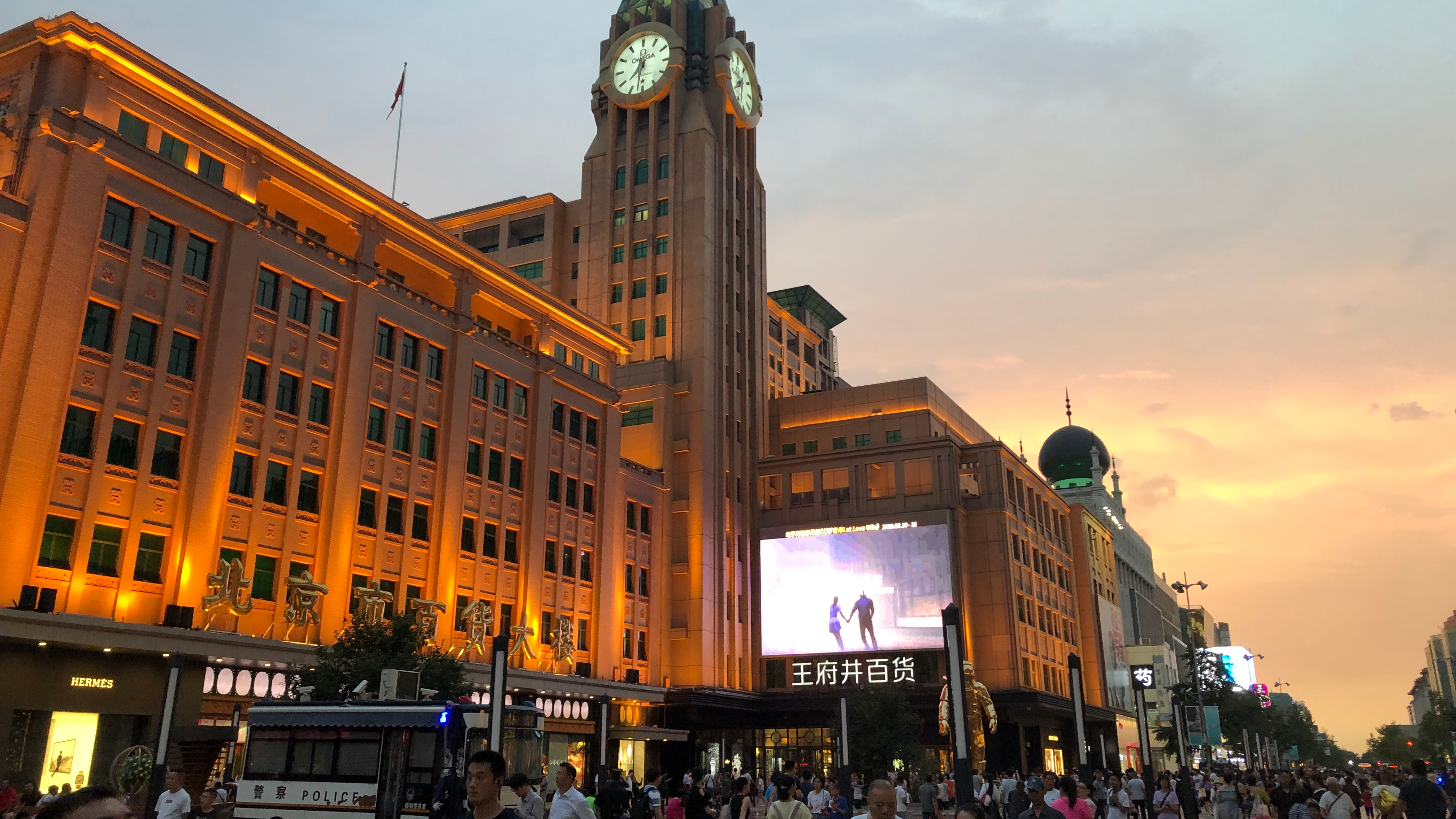
Wangfujing shopping center in Beijing, capital of China, July 25, 2019. /Xinhua
Wangfujing shopping center in Beijing, capital of China, July 25, 2019. /Xinhua
Editor's note: Matteo Giovannini is a finance professional at ICBC in Beijing and a member of the China Task Force at the Italian Ministry of Economic Development. The article reflects the author's opinions and not necessarily the views of CGTN.
The outbreak of COVID-19, that primarily had the consequence of forcing China to stop its economy for at least a quarter, has been directly responsible for several collateral effects due to travel bans and restrictions on day-to-day life habits affecting companies in many industries and leading in some cases to business closure and the layoff of workers.
The economic casualties of the pandemic have quickly become the central issue in government's agenda with discussions and policies towards drastic interventions to guarantee a lifeline for the survival of SMEs that faced cash flow problems and to provide help for individuals who lost their jobs.
The last National People's Congress in Beijing has been characterized by key economic measures that the country is willing to address in a time of crisis and has underlined the primary importance of consumption as a tool to stabilize the domestic economy and to create the foundations of growth for the rest of this year.
Several important initiatives have been taken by local governments and municipalities ranging from waiving social insurance and social security payments to deferring collection of taxes on severely affected businesses such as transportation, hospitality, dining and retail.
In addition, coupons or consumer vouchers have been handed out directly to citizens' smartphones through Alipay and WeChat Pay platforms to stimulate retail consumption that represents the real engine of modern China's economic growth.
The latest move in the attempt to stimulate consumer spending comes from the approval given by the Ministry of Finance to Wangfujing Group to sell duty-free goods in its department stores.
Wangfujing Group directly controls over 50 stores in more than 30 Chinese cities and owns Beijing Department Store which has been a popular shopping destination right in the center of the capital.
The resolution approved by the Ministry of Finance does not come as unexpected since it follows a notice from the National Development and Reform Commission (NDRC) and puts into work the intentions of the Ministry of Commerce explained in April that it would have streamlined policies for the expansion of duty-free spots especially in downtown areas in an attempt to incentivize consumption.
Duty-free has been for a long time mostly associated with travels and with major airports where tourists arriving at a destination or in-transit have the chance to buy almost any kind of item at a very discounted price due to the exemption of payment of local and national taxes.

Sanya international duty-free shopping complex in Sanya, south China's Hainan Province, April 4, 2020. /Xinhua
Sanya international duty-free shopping complex in Sanya, south China's Hainan Province, April 4, 2020. /Xinhua
According to the investment bank Morgan Stanley, China's duty-free market only represents nine percent of global shares, which is a very low percentage considering that the Beijing Capital International Airport is the second busiest airport in the world, and one-third of global duty-free sales come from Chinese consumers, making China the world's largest outbound tourism market by visitor spending.
In this sense, the travel ban that has created a disruption in overseas tourism this year represents a unique opportunity for China from the one side to boost domestic consumer spending by recreating the duty-free ecosystem within its borders and from the other side to rebalance the weight of China's duty-free market in proportion to global duty-free sales with a consequent benefit for the national GDP.
Certainly the decision to extend duty-free status in downtown areas is something new that serves as an extraordinary stimulus for the revival of the domestic economy and to incentivize people, who have been prevented from traveling this year, to spend their money in products that otherwise would have rarely been bought at the prices normally applied in cities' stores.
Moreover, the downtown duty-free trend is expected to be extended well beyond the Chinese capital considering that other cities such as Guangzhou are also planning to get the approval for duty-free stores in their downtown areas and that recently the State Council has released measures to turn the tropical island of Hainan into a free trade port system.
The decision to stimulate domestic consumer spending has also the indirect effect and significance to further continue the opening up of the Chinese economy to foreign brands by providing the chance to receive equal treatment in terms of selling price and to compete on equal terms with local brands.
This is certainly news welcomed and celebrated by foreign brands that have been suffering for the whole year the loss of sales from the lucrative Chinese travelers, and by Chamber of Commerce officials that have frequently lamented unequal treatment of foreign investment in China such as market access barriers and regulatory burdens.
In this difficult moment when China is still strenuously fighting against COVID-19, policies such as the extension of duty-free retail licenses represent on the one hand an additional attempt to incentivize consumption and to revitalize the national economy and on the other hand another step toward the opening up of China's economy to foreign companies meeting at the same time the requests of governmental and non-governmental organizations for an easier market access.
(If you want to contribute and have specific expertise, please contact us at opinions@cgtn.com.)